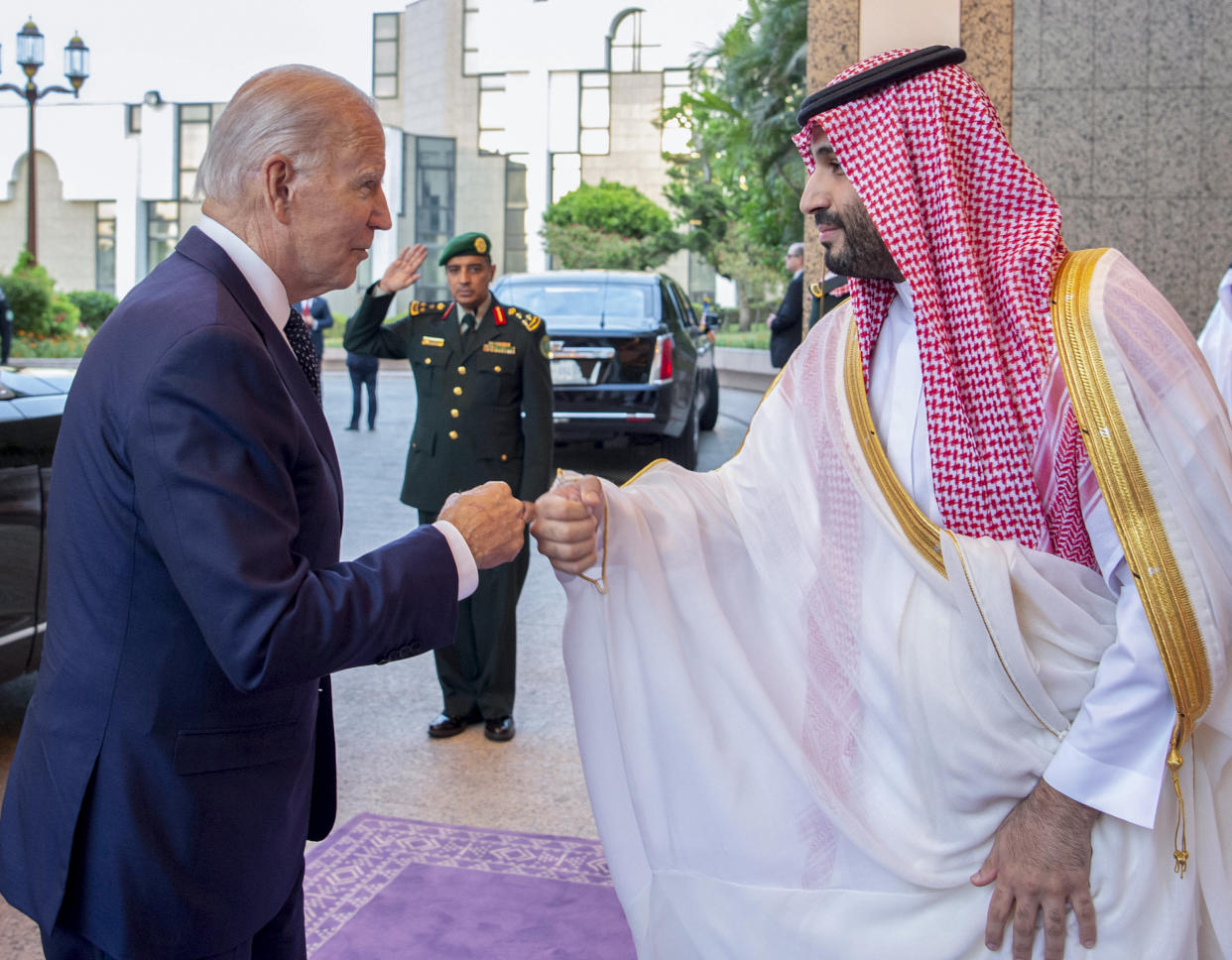Washington gives a more muted reaction to a second OPEC oil production cut
Sunday's announcement from Saudi Arabia and other major producers to cut oil production by 1.66 million barrels per day was the second such call in under a year, moves that have gone against the wishes of the White House.
But in a notable shift from the bellicose language last time around, commentary from Washington policymakers so far Monday have been much more muted.
The change in rhetoric reflects the key role the White House sees Saudi Arabia playing on the diplomatic front in the Middle East, along with the recognition that oil prices aren't nearly as crushing as before.
“This is a different situation than we had last year,” Admiral John Kirby, Biden’s National Security Council spokesman, told reporters on Monday morning.
While reiterating that the White House viewed the production cuts as “inadvisable,” Kirby added that the White House and Saudi Arabia "don't always see eye to eye on everything, but there are many things that are of mutual concern.”
‘We're just in a different place’
Last year, after furious White House lobbying, President Biden vowed that “there will be consequences” for Saudi Arabia after it announced the October decision. White House Council of Economic Advisers member Jared Bernstein added in a Yahoo Finance Live interview that the cut then was “a very wrong-headed decision.”
This time around, Kirby said Monday that the more muted rhetoric was largely due to the fact that we're "just in a different place in the market than we were last year.”
At the time of last year's production cuts, global prices were about $120 a barrel. On Monday, even after an overnight jump that sent West Texas Intermediate (CL=F) and Brent (BZ=F) crude futures up more than 5%, prices were at around $84 a barrel.

In a Yahoo Finance Live interview Monday, an oil analyst noted that Saudi Arabia's move is expected to push prices at the pump up some, but not necessarily through the roof — another factor likely to lessen the outrage from Washington.
"They want a price in the $80s, essentially, because it meets their budgetary needs," said Kpler Lead Oil Analyst Matt Smith of OPEC's motives. "But it also means that prices aren't too high so they cause demand destruction."
Kirby also pointed to more cooperation with Saudi Arabia on issues like extending a ceasefire in Yemen and helping normalize relations between Israel and its neighbors as reasons for the more diplomatic response.
“We noticed that the Saudis have worked hard to help us,” he said.
A similar pattern on Capitol Hill

The contrast was also notable on Capitol Hill. Last time around, a parade of prominent lawmakers quickly offered plans to punish the kingdom.
In the months since, Congress has indeed moved closer to putting stricter limits on arms sales to Saudi Arabia, and lawmakers recently reintroduced a bill — dubbed NOPEC — to pressure the OPEC to stop making output cuts.
“As if it wasn’t already obvious, the sudden decision to slash oil production proves yet again that OPEC can’t be trusted," Sen. Chuck Grassley (R-IA) told Yahoo Finance in a statement. "I hope the Senate will move quickly to pass my NOPEC bill when we return to session."
Other lawmakers have been quieter so far.
Last October for example Sen. Bob Menendez (D-NJ), the influential head of the Senate Foreign Relations Committee, released a statement calling for the U.S. to “immediately freeze all aspects of our cooperation with Saudi Arabia.” But Menendez hasn’t yet offered any response in the hours since this latest announcement. A spokesman for the senator also didn’t immediately respond to a request for comment from Yahoo Finance.
It was a similar pattern among other lawmakers like Sen. Richard Blumenthal (D-CT) and Reps. Ro Khanna (D-CA), Sean Casten (D-IL), and others who have offered different plans in the past to punish Saudi Arabia. They tweeted about a range of topics Monday morning without mentioning Saudi Arabia.
Energy Word Founder Dan Dicker called the back and forth this week just the latest salvo in "a very slow-burning cold war" between OPEC and the Biden administration about the direction of oil prices — a battle that is likely to continue for some time.
Ben Werschkul is Washington correspondent for Yahoo Finance.
Click here for politics news related to business and money
Read the latest financial and business news from Yahoo Finance
Download the Yahoo Finance app for Apple or Android
Follow Yahoo Finance on Twitter, Facebook, Instagram, Flipboard, LinkedIn, and YouTube
